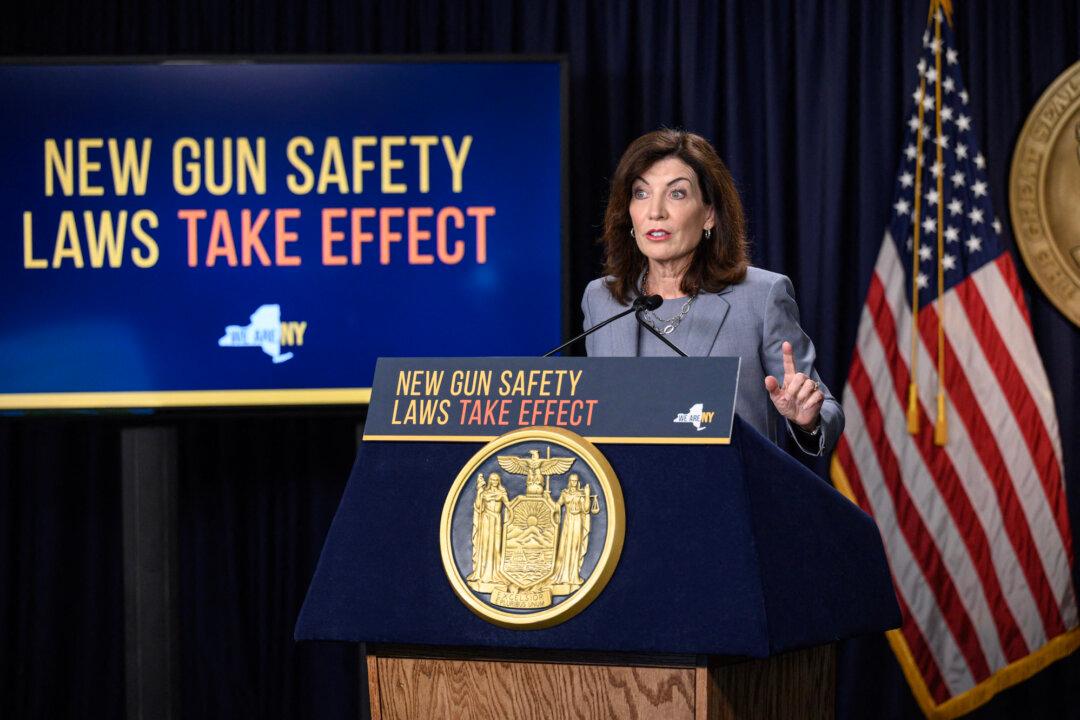New York state may resume enforcing its sweeping new gun control law after a federal appeals court temporarily lifted a stay on Nov. 15 that had blocked parts of the law that had been declared unconstitutional by a lower court the week before.
The judicial decision came as courts in states with restrictive gun laws are reviewing those measures in light of the U.S. Supreme Court’s landmark June 23 decision in New York State Rifle and Pistol Association v. Bruen, which held that there’s a constitutional right to carry a gun outside the home for self-defense.





